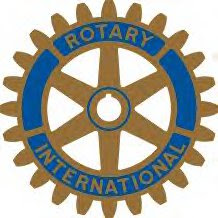20120923
European Union at the United Nations
Our speaker at the September 2012 meeting was H.E. Ambassador Mayr-Harting,Head of the EU Delegation to the UN in New York since October 2011.
He previously served from December 2008 as the Permanent Representative of Austria to the United Nations in New York.
From 2009 to 2010 he represented Austria on the UN Security Council and was President of the Security Council for the month of November 2009. In his former capacity as the Austrian Ambassador to the UN, he also served as Vice-President of the 66th General Assembly.
Between 2003 and 2008.
Mr. Mayr-Harting joined the Austrian diplomatic service in 1979. In the course of his career he served with the Austrian Mission to the European Communities in Brussels (1982-1986), the Austrian Embassy in Moscow (1986-1990), the Private Office of the Austrian Foreign Minister (1991-1995) and as Deputy Political Director and Director for Security Policy and Policy Planning (1995-1999). From 2002 to 2004, Mr. Mayr-Harting also acted as Special Representative of the Austrian Foreign Minister for the Western Balkans.
Mr. Mayr-Harting received his law degree at the University of Vienna in 1977. From 1977 to 1978, he studied European law at the College of Europe in Bruges, Belgium. In 1978.
The European Union (EU) has been an observer member at the United Nations (UN) since 1974 and has had enhanced participation rights since 2011. The EU itself does not have voting rights but it is represented alongside its 27 members which do, two of which are permanent members of the Security Council, those being France and the United Kingdom.
The EU and its member states are the UN's largest financial contributors, providing 38.9% of the UN budget in 2007 (followed by the US at 22% and Japan at 16.6%). The EU also provides 55.6% of global development aid (followed by the US at 23.4% and Japan at 11.1%), 40.6% of the funding for UN peacekeeping missions and around half of the budgets for UN funds and programmes. Almost a third of the European Commission's aid budget goes to the UN.
The EU provides 40% of the funds for UN peacekeeping and 13.5% of peacekeeping personnel (11,140 men and women) in 2006. It also operates its own missions to support the UN, such as the EU mission in the Congo to support the UN peacekeepers there. The EU also established and funds the African Peace Facility.
The EU supports the UN's values of freedom, democracy and human rights. The preamble to the EU's treaty cites the UN Charter's human rights articles and is very active on the UN Human Rights Council. The EU was also instrumental in setting up the system of UN Special Rapporteurs on human rights issues.
He previously served from December 2008 as the Permanent Representative of Austria to the United Nations in New York.
From 2009 to 2010 he represented Austria on the UN Security Council and was President of the Security Council for the month of November 2009. In his former capacity as the Austrian Ambassador to the UN, he also served as Vice-President of the 66th General Assembly.
Between 2003 and 2008.
Mr. Mayr-Harting joined the Austrian diplomatic service in 1979. In the course of his career he served with the Austrian Mission to the European Communities in Brussels (1982-1986), the Austrian Embassy in Moscow (1986-1990), the Private Office of the Austrian Foreign Minister (1991-1995) and as Deputy Political Director and Director for Security Policy and Policy Planning (1995-1999). From 2002 to 2004, Mr. Mayr-Harting also acted as Special Representative of the Austrian Foreign Minister for the Western Balkans.
Mr. Mayr-Harting received his law degree at the University of Vienna in 1977. From 1977 to 1978, he studied European law at the College of Europe in Bruges, Belgium. In 1978.
The European Union (EU) has been an observer member at the United Nations (UN) since 1974 and has had enhanced participation rights since 2011. The EU itself does not have voting rights but it is represented alongside its 27 members which do, two of which are permanent members of the Security Council, those being France and the United Kingdom.
The EU and its member states are the UN's largest financial contributors, providing 38.9% of the UN budget in 2007 (followed by the US at 22% and Japan at 16.6%). The EU also provides 55.6% of global development aid (followed by the US at 23.4% and Japan at 11.1%), 40.6% of the funding for UN peacekeeping missions and around half of the budgets for UN funds and programmes. Almost a third of the European Commission's aid budget goes to the UN.
The EU provides 40% of the funds for UN peacekeeping and 13.5% of peacekeeping personnel (11,140 men and women) in 2006. It also operates its own missions to support the UN, such as the EU mission in the Congo to support the UN peacekeepers there. The EU also established and funds the African Peace Facility.
The EU supports the UN's values of freedom, democracy and human rights. The preamble to the EU's treaty cites the UN Charter's human rights articles and is very active on the UN Human Rights Council. The EU was also instrumental in setting up the system of UN Special Rapporteurs on human rights issues.










